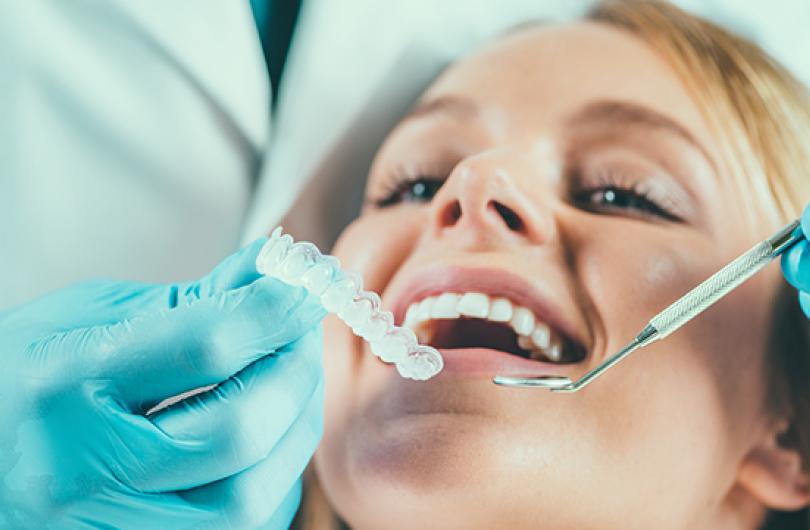“But it doesn’t hurt!” – A Dentist’s Perspective on Tooth Pain and What It Means to You!

For this blog post, I have decided to talk about one of the most important topics for dental patients; dental pain. Dental pain is one of the least understood phenomena by patients because it is so different than what we are used to experiencing elsewhere in our bodies. For example, when you scrape your knee after falling on hard pavement, you instantly know something is wrong because of the intense pain that radiates up your leg. As time goes on, you may notice that the scrape has become infected and the pain has suddenly increased as a result. In severe cases, you may even have systemic effects of infection such as swollen lymph nodes or fever. When it comes to your teeth, however, the experience may be much different.
Our teeth are much more than meets the eye! Each and every tooth is a complex, multi-layered system of minerals (hydroxyapatite crystals to be specific), water, collagen, blood vessels, nerves, and more! Teeth can undergo many processes that may result in needing some sort of treatment whether it is a filling, a crown, or any number of dental procedures.
What makes teeth so hard to understand is that not all of the problems associated with them cause pain! For example, most cavities begin as painless surface-level lesions which slowly progress over time inward toward the center of the tooth. The classic “toothache” syndrome doesn’t even become noticed until the decay has reached the very center of the tooth where the nerve and blood supply is located.
Sometimes, teeth can have deep decay and even fractured parts which are completely painless. Some teeth may respond to a large cavity by becoming necrotic. This means that the nerve inside the tooth has “died” due to bacterial invasion or trauma and now has a bony abscess forming without you even realizing what is happening. These abscess infections may even lead to hospitalization due to the infection spreading to other parts of the body.
As dentists and dental healthcare providers, we feel it is important for our patients to know that tooth pain is one of the least reliable methods for diagnosing dental problems. Without regular dental x-rays and check-ups, you may be unaware of exactly what is happening inside your teeth. Waiting until a tooth starts to ache before seeing the dentist could be an extremely expensive and time-consuming mistake which we attempt to avoid at all costs.
At AuraSmile Dental, we believe in preventative dental care with an emphasis on catching small problems before they become big headaches. We love taking the time to review with you all of your dental records including photographs and x-rays so that you have a thorough understanding of what is going on with your body. By doing so, we are able to work with you in a personal way to make the best decisions about your oral health going forward.
Don’t let procrastination or fear of the dentist stand in the way of you and a healthy mouth. Schedule an appointment today and find out how we can make things more comfortable, more easy-to-understand, and more personalized than you’ve ever imagined a dental visit could be.
More articles

2018
New Study Shows 6/10 Americans Too Afraid to Visit the Dentist.
In a recent poll of 2,000 Americans, it was found that 6 out of every 10 Americans avoid visiting the dentist out of fear. This is an oral health crisis in our country and we need to raise awareness of what modern dentistry has to offer to these fearful patients.
There were some statistics from the study that really stood out to me. Do any of these apply to you or to people you know?

2018
“But it doesn’t hurt!” – A Dentist’s Perspective on Tooth Pain and What It Means to You!
For this blog post, I have decided to talk about one of the most important topics for dental patients; dental pain. Dental pain is one of the least understood phenomena by patients because it is so different than what we are used to experiencing elsewhere in our bodies. For example, when you scrape your knee after falling on hard pavement, you instantly know something is wrong because of the intense pain that radiates up your leg. As time goes on, you may notice that the scrape has become infected and the pain has suddenly increased as a result.

2017
Got Crooked Teeth? Here’s What You Can Do Right Now! *Video*
Check out the quick video below to see Dr. Scott Voiers of AuraSmile Dental explain how crooked teeth can be fixed in less time than you might think thanks to invisible orthodontics!
